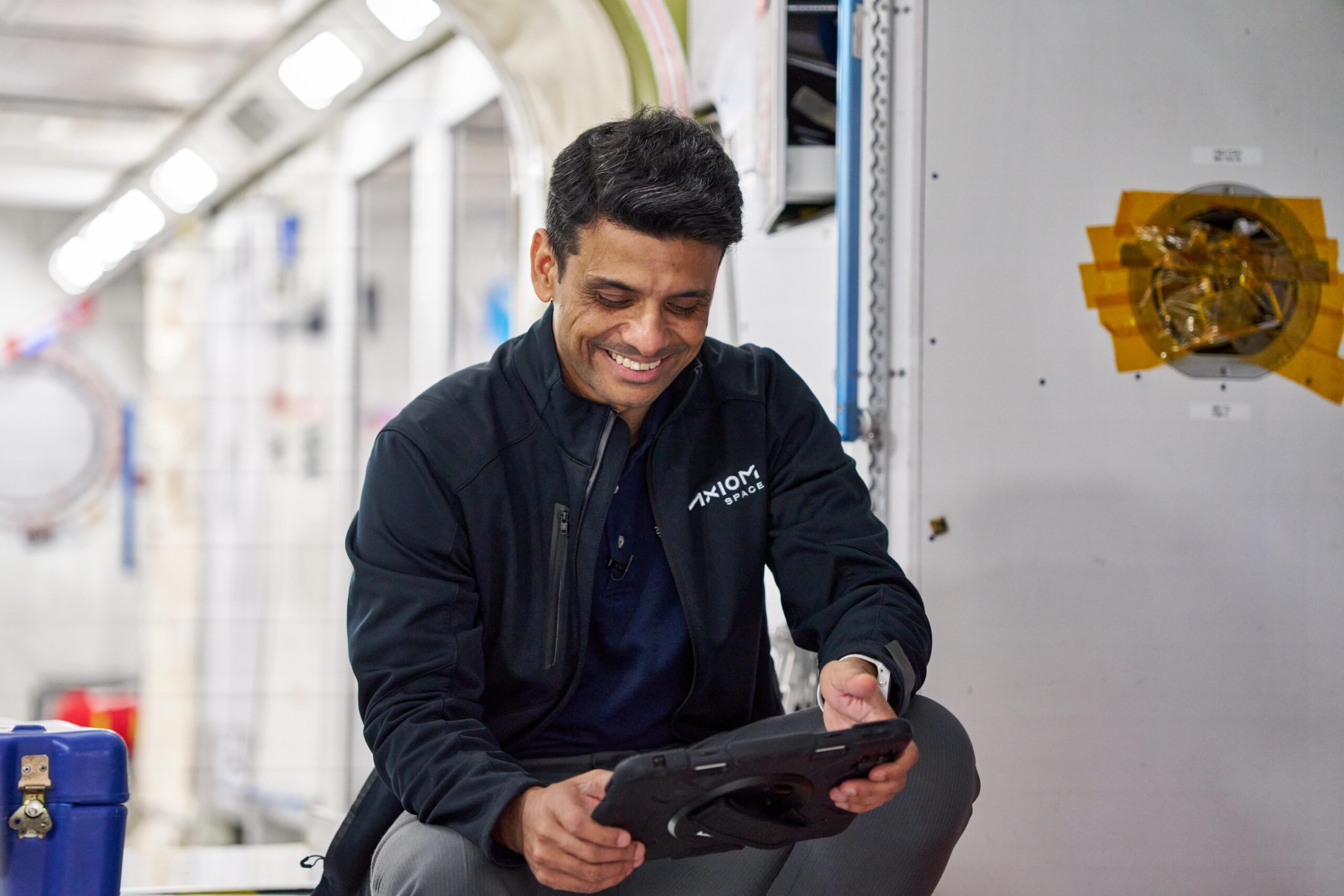Private Space News (16-20 June)
Landspace, a Chinese private rocket company, has successfully launched six satellites for Spacety, a commercial satellite operator known for Earth observation data. The launch of the methane-fueled Zhuque-2E rocket demonstrates China’s growing maturity in the private launch vehicle industry and its ability to serve commercial satellite customers. The “Three-Body Computing Constellation” project aims to deploy up to 2,800 satellites, positioning China as a global leader in space-based AI computing infrastructure. China’s commercial space sector is experiencing a record surge in funding and dealmaking, with rocket manufacturers like Landspace, Space Pioneer, Galactic Energy, and Deep Blue Aerospace securing hundreds of millions of dollars in recent funding rounds. Russia’s space private sector, space tech startups, and the Skolkovo Innovation Center ecosystem are focusing on companies like Dauria Aerospace, Sputnix, Spectralaser, New Energy Technologies, Azmerit, Lin Industrial, Bureau 1440, Future Lab, and Integral Robotics. The US private space startup ecosystem is robust and innovative, with key innovation areas including reusable launch vehicles, satellite servicing, space situational awareness, Earth observation, space-based manufacturing, and satellite internet.
- 2030 Ambition
- AI-Driven Space Applications
- Chinese Tech Startups
- Commercial Space Sector
- Dauria Aerospace
- Debris Mitigation
- Deep Blue Aerospace
- Earth observation
- Eco-Friendly Rocket
- EnduroSat
- ESA Business Incubation Centres (BICs)
- European Collaboration
- Funding
- Funding Surge
- Galactic Energy
- Global Space Power
- Green Space Technologies
- High-Resolution Imaging
- Hyperspectral Imaging
- Indian Space Startups
- Indian Startups
- Isar Aerospace
- Landspace
- Look Up Space
- Market Access
- Modular Spacecraft
- Nanosatellite Manufacturer
- NATO Innovation Fund
- New Energy Technologies
- Open Cosmos
- PLD Space
- Private Rocket Company
- Propulsion Systems
- Radar Network
- Reusable Launch Vehicles
- Rocket Manufacturers
- Russia's Space Sector
- Satellite Internet
- Satellite Launch
- Satellite Mission Management
- Satellite Payloads
- Satellite Servicing
- Skolkovo Innovation Center
- Skyrora
- Space Pioneer
- Space Situational Awareness
- Space Startups
- Space Surveillance
- Space Sustainability
- Space Traffic Management
- Space-Based AI
- Space-Based Manufacturing
- Spacety
- Spectralaser
- Sputnix
- Technology Development
- The Exploration Company
- Thermal Earth Observation
- Three-Body Computing Constellation
- US Private Space Ecosystem
- Venture Capital
China conducts In-orbit Refueling Test
Two Chinese spacecraft, the Shijian-21 and Shijian-25, have recently met up 22,000 miles above Earth as part of a refueling demonstration mission. The spacecraft were developed by China’s state-owned Shanghai Academy of Spaceflight Technology (SAST). The test aims to demonstrate on-orbit refueling and mission extension capabilities, helping to improve the sustainability of space operations. The US and Tokyo-based Astroscale are likely to observe the activity, and the US has already tested life-extension services for satellites in geosynchronous orbit.
- 22
- 236 Miles
- Astroscale
- Chinese Spacecraft
- Close Approach
- Complex Refueling Tests
- Docking Test
- Geosynchronous Orbit
- Life-Extension Services
- Long March 3B
- Military Space Debris Mitigation
- Mission Extension Capabilities
- Mission Extension Vehicle-1
- Mission Extension Vehicle-2
- On-Orbit Refueling
- Orbital Maneuvering
- Refueling Demonstration Mission
- s2a Systems
- Satellite Sustainability
- Shanghai Academy of Spaceflight Technology (SAST)
- Shijian-21
- Space Exploration
- Space Operations
- Space Situational Awareness
- Space technology
- Sustainability of Space Operations
- U.S. Surveillance Spacecraft
- Undocking Test
- USA 270
- USA 271
Public Space News (16-20 June)
China’s Tiangong Space Station is in good health, with astronauts Chen Dong, Chen Zhongrui, and Wang Jie conducting multidisciplinary space science experiments. The Solar wind Magnetosphere Ionosphere Link Explorer (SMILE) mission, a joint China-ESA mission, is set to launch in 2025. China’s Tianwen-2 mission is progressing, and the station continues to operate with ongoing scientific research and crewed missions.
Russia’s Roscosmos is working on a new cargo ship for the International Space Station (ISS), while NASA and Roscosmos teams are working on ISS maintenance. The 70th anniversary of Baikonur, Russia’s cosmodrome, has been celebrated with photo exhibitions and the most powerful liquid rocket engine, RD-171MV, sent for assembly. NASA’s Polarimeter to Unify the Corona and Heliosphere (PUNCH) mission released its first images, while the X-59 supersonic demonstrator passed a safety and flight readiness review. NASA’s Axiom 4 commercial crew mission to the ISS was postponed due to weather and a Falcon 9 liquid oxygen leak repair. The US Space Technology Ecosystem and Startups are focusing on sustainable lunar technologies and advanced spacecraft. China’s Tiangong Space Station is conducting extensive space science experiments, and India is preparing for the Gaganyaan human spaceflight in 2025.
- Asteroid Sample-Return Mission
- Chen Zhongrui
- China-Europe Joint Mission SMILE
- Deep Space Exploration Plans
- Earth 2.0 Exoplanet Search Mission
- eXTP X-ray Timing and Polarimetry Observatory
- Fine Motor Skills
- Hongmeng/DSL Project
- In-Orbit Detectors
- Interaction Between Solar Wind and Magnetosphere
- International Scientific Cooperation
- Launch in 2025
- Shenzhou-20 Crew Activities; Tiangong Space Station; Astronauts: Chen Dong
- Solar Wind Magnetosphere Ionosphere Link Explorer
- Teamwork Dynamics
- Tianwen-2 Mission Progress
- Vascular Health
- Wang Jie; Multidisciplinary Space Science Experiments; Space Medicine Research; Cognitive Function
Where is the democratization of Space Tourism going in 2025 (Space Tech)
Space tourism involves traveling to space for recreational, leisure, or business purposes, typically involving paying a fee to travel aboard spacecraft designed for this purpose. Early commercial concepts emerged in the mid-20th century, with milestones such as Dennis Tito becoming the first self-funded space tourist in 2001, Mark Shuttleworth becoming the first African in space, and SpaceShipOne winning the Ansari X Prize in 2004. Companies like Virgin Galactic, Blue Origin, and SpaceX are pioneering commercial space tourism, expanding access beyond government astronauts to private individuals.
- Anousheh Ansari
- Ansari X Prize
- Axiom Space
- commercial flights
- commercial spaceflight
- Dennis Tito
- Earth’s curvature
- Inspiration4
- International Space Station (ISS)
- lunar travel.
- Mark Shuttleworth
- moon tourism
- orbital flights
- private individuals
- recreational travel
- Richard Branson
- Space Adventures
- Space tourism
- spacecraft
- SpaceShipOne
- SpaceX
- suborbital flights
- Virgin Galactic
- weightlessness
- Yusaku Maezawa
Private Space News (9-13 June)
The major private companies offering space tourism services in 2025 include SpaceX, Blue Origin, and Virgin Galactic. SpaceX leads in orbital space tourism with its Starship program, offering multi-day missions and lunar flybys. Blue Origin specializes in suborbital tourism with its New Shepard vehicle, providing automated flights with large windows for Earth viewing. Virgin Galactic operates suborbital flights using SpaceShipTwo and is developing “Delta-class” spaceplanes for enhanced experiences. Over 10 companies are entering the market, with suborbital tourism dominating and orbital demand expected to rise by 2030.
- Archimedes engine.
- Axiom Mission 4 (Ax-4)
- Axiom Space
- Blue Moon Mark 1
- Blue Origin
- Commercial space station
- Crew Dragon spacecraft
- Delta-class spaceplanes
- Earth observation
- Electron rocket
- Falcon 9 rocket
- Heavy-lift rocket
- Human research
- International Space Station (ISS)
- Kennedy Space Center
- NASA private astronaut mission program
- Neutron rocket
- New Glenn rocket
- New Shepard
- Polaris Program
- Rocket Lab
- Scientific experiments
- Space tourism
- SpaceX
- SpaceX Human Spaceflight Program
- Starship vehicle
- Synthetic aperture radar satellite
- Ticket sales
- Virgin Galactic
Public Space News (9-13 June)
Space tourism involves traveling to space for recreational, leisure, or business purposes, typically involving paying a fee to travel aboard spacecraft designed for this purpose. Early commercial concepts emerged in the mid-20th century, with milestones such as Dennis Tito becoming the first self-funded space tourist in 2001, Mark Shuttleworth becoming the first African in space, and SpaceShipOne winning the Ansari X Prize in 2004. Companies like Virgin Galactic, Blue Origin, and SpaceX are pioneering commercial space tourism, expanding access beyond government astronauts to private individuals.
- Artemis program
- Axiom Mission 4 (Ax-4)
- Boeing Starliner
- European Space Agency (ESA)
- Falcon 9 rocket
- Gaganyaan program
- Human spaceflight programs
- Indian Space Research Organisation (ISRO)
- International cooperation
- International Space Station (ISS)
- ISS spacewalk
- Janet Petro
- Jeanette Epps
- Jet Propulsion Laboratory
- Johnson Space Center (JSC)
- Kennedy Space Center (KSC)
- Lunar I-Hab
- Lunar power plant
- NASA
- Open Innovation challenges
- Pakistan
- Roscosmos
- Satellite network
- Scientific experiments
- Shijian-26 satellite
- Smile mission.
- SpaceX
- Tiangong space station
- Tianwen-2 mission
Why the Pullback of Jared Isaacman’s Nomination?
On May 28, Musk criticized a major administration bill currently being considered by the U.S. Congress, followed by the announcement on May 29 that he will be leaving the Trump administration on May 30. A sharper fallout continued and spilled over onto social media, leading, Isaacman said, to the withdrawal of his nomination.
- Administration changes
- All-In Podcast
- Bipartisan donations
- Committee vote
- Confirmation hearing
- Donald Trump
- Earth orbit missions
- Elon Musk
- Funding activities
- Human spaceflight
- Jared Isaacman
- Moderate politics
- NASA Administrator
- Nomination withdrawal
- Political dynamics
- Private astronaut
- Public comments
- Rationale for decision
- Senate confirmation
- Social media fallout
- SpaceX
- Support base
- Tech entrepreneur
- Visibility in politic
- White House
SpaceX Ax-4 launch postponed: propellant leak (Space News)
SpaceX’s Ax-4 mission, carrying four private astronauts to the International Space Station, has been postponed due to technical issues. The launch was initially delayed due to a LOx propellant leak in the Falcon 9 rocket and a new air pressure leak in the Russian segment.
- Ax-4 Mission
- Axiom Space
- Build & Flight Reliability
- Crew Dragon capsule
- Falcon 9 rocket
- Human spaceflight
- ISS (International Space Station)
- Launch delay
- Liquid oxygen
- Pacific Ocean
- Peggy Whitson
- Prelaunch tests
- propellant leak
- Refurbishment
- Rocket engines.
- RP-1
- Science experiments
- Shubhanshu Shukla
- Sławosz Uznański-Wiśniewski
- SpaceX
- Splashdown
- Static fire test
- Tibor Kapu
- Troubleshooting
- William Gestmeier
Meet Axiom-4 Pilot Shubanshu Shukla (Space People)
Axiom Space is set to launch the first Indian astronaut to orbit since 1984, Group Captain Shubhanshu Shukla, on the Ax-4 mission. The four-person mission will conduct research and tech demonstrations aboard the ISS for 14 days, with contributions from over 30 countries.
- Astronaut team
- Ax-4 Mission
- Axiom Space
- Cumulative time in space
- European Space Agency
- Experiments
- Gaganyaan
- Human spaceflight
- Indian astronaut
- Indian Space Research Organisation (ISRO)
- International Space Station (ISS)
- Kennedy Space Center (KSC)
- Large Hadron Collider
- Orbital human spaceflight.
- Peggy Whitson
- Prime Minister Narendra Modi
- Rakesh Sharma
- Research and technology demonstrations
- Shubhanshu Shukla
- Sławosz Uznański-Wiśniewski
- Space mission
- Spaceflight
- Tibor Kapu
- Vikram Sarabhai Space Centre
Space-Based Solar: Meeting Future Energy Demands (Space Tech)
Experts predict that the US may fall behind China in developing space-based solar power (SBSP), a crucial component for global energy needs. By 2050, modernizing the power grid requires a $21.4 trillion investment, with $17.3 trillion needed to meet new energy demands. SBSP collects solar power in space using satellites and beams it back to Earth, potentially producing five to six times more energy than ground-based panels.
- Air Force Research Laboratory
- Coal plant retirements
- Disaster recovery
- Economic feasibility study.
- Energy independence
- Energy market opportunity
- ESA (European Space Agency)
- Global energy needs
- Grid reliability
- Infrared laser transmission
- Investment
- Legislative milestones
- Microwave transmission
- NASA-DOE Interagency Coordination Bill
- National security
- Nuclear power capacity
- Portable receiver stations
- Power beaming systems
- Power grid modernization
- Renewable energy
- Solar power satellites
- Solaris project
- Space Solar Power (SSP)
- Space-Based Solar Power (SBSP)
- Technical feasibility study


